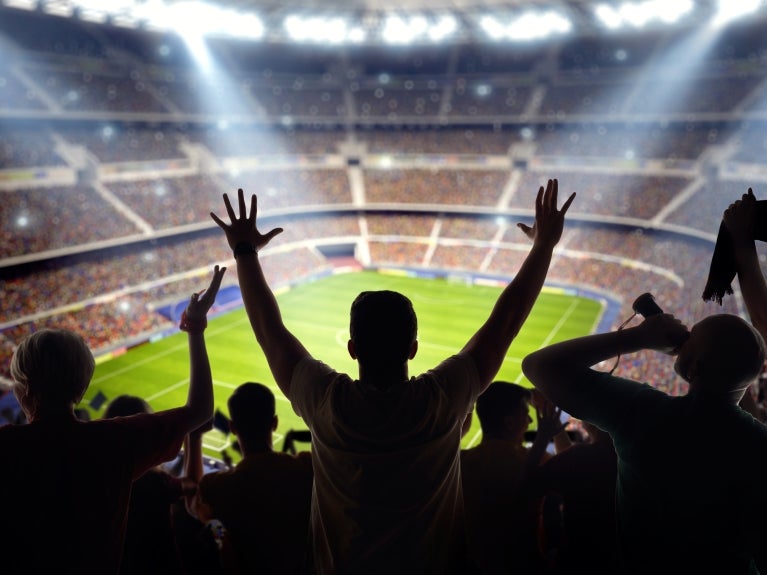Notes from the Field: NYU Law, Sports Law Association, 13th Annual Sports Law Colloquium

What a great opportunity to speak and learn about today's hot topics in sports law at New York University, School of Law, Sports Law Association's 13th Annual Sports Law Colloquium on April 5, 2024. Like Brooklyn Law School's third annual Sports Law Symposium, Sports Tech: a Sports Lawyer's Playbook, NYU Law's Colloquium covered the impact of artificial intelligence (AI) on sports, but also delved into sportswashing and the future of college sports. Here are my takeaways from this year's NYU Sports Law Colloquium.
- AI in sports. On the first panel, "Artificial Intelligence in Sports," we explored how AI in the form of wearable, sensor, optical, and tracking technologies is already being used across multiple sports to advance game play, talent scouting, player performance, training methods, and injury prevention and recovery. However, while collecting an athlete's biometric data, "an athlete's physical or physiological characteristics, such as heart rate, body temperature, or sleep patterns," might help an athlete push up his or her personal record, that same data can also work against players when it comes to management decisions and contract negotiations. The speakers noted how players and players associations are, on the one hand, wary of athlete biometric data being used against them in player management decisions, and on the other hand, eager to pursue the commercial opportunities in exploiting their biometric data and their name, image and likeness (NIL) rights. The panelists noted how athletes and their unions are increasingly pushing for guardrails around the use of their performance data, pointing to the FIFPRO's Charter of Player Data Rights and Project Red Card as examples.
- Sportswashing. The second panel, "Sportswashing: The Use of Sports as Diplomacy," covered the growing trend of sportswashing, "the use of an athletic event by an individual or a government, a corporation, or another group to promote or burnish the individual's or group's reputation, especially amid controversy or scandal." The speakers examined how foreign government (or quasi-government) investments in American sports raise challenging issues around foreign influence, national security, and human rights. Consider last year's announcement that LIV Golf, financed by Saudi Arabia's Public Investment Fund (PIF), would merge with the PGA Tour. The panelists noted how the merger agreement contains a "non-disparagement clause" which prohibits members and officials from speaking out against the regime, and how the PIF sued four U.S.-based consultants in a Saudi court to block them from complying with subpoenas issued by the U.S. Senate Permanent Subcommittee on Investigations.
- NCAA Realignment. The third panel, "NCAA Conference Realignment & Implications," discussed the many ripple effects emanating from the dismantling of what were the Power Five conferences. The speakers noted how these conferences are starting to function like leagues, and how they differ in the way they treat departing members, such as how they address withdrawal fees, media rights, and voting rights. In addition, in the wake of the Supreme Court's decision in NCAA v. Alston (which invalidated, on federal antitrust grounds, the NCAA's restrictions on education-related benefits offered to student athletes), the NCAA continues to experience the aftershocks, notwithstanding its change in policy allowing student athletes to be compensated for their NIL. Earlier this year, after the National Labor Relations Board determined that members of the Dartmouth College men's basketball team were employees, the team became the first-ever union for college athletes, and the attorneys general of Tennessee and Virginia secured a preliminary injunction against the NCAA for attempting to block booster-funded NIL collectives from recruiting student athletes.
- Future of College Athletics. The program ended with a "Key Note Address: Proposed NCAA Regulations & the State of College Athletics" by one of the lawyers who worked on behalf of college athletes in NCAA v. Alston. As the NCAA's "myth of amateurism" continues to crumble in the face of federal antitrust law, we are at the cusp of a new frontier for student athletes, university athletic departments, and perhaps fans in the evolving landscape of college sports.
- Conclusion. The playing field is shifting when it comes to the leverage and power of athletes, their unions, and their NIL value. As AI continues to accelerate the ability to exploit athlete data and as courts continue to reinforce NIL rights for athletes, wherever you sit in the wide world of sports, everyone is in for an unprecedented era in sports, sports law, and the sports business, as everyone in the industry jockeys to get their fair share in this lucrative field.
Follow us on social media @PerkinsCoieLLP, and if you have any questions or comments, contact us here. We invite you to learn more about our Digital Media & Entertainment, Gaming & Sports industry group and check out our podcast: Innovation Unlocked: The Future of Entertainment.
Age of Disruption
We live in a disruptive age, with ever-accelerating advances in technology largely fueling the disruption permeating almost every aspect of our lives. We created the Age of Disruption blog with the goal of exploring the emerging technologies reshaping society and the business and legal considerations that they raise.
